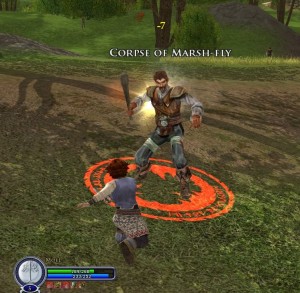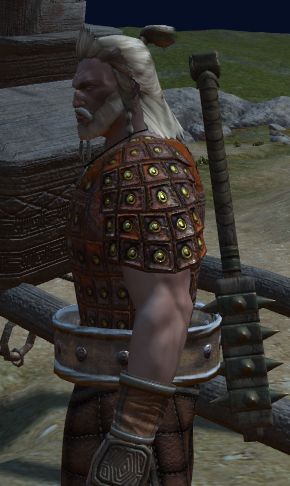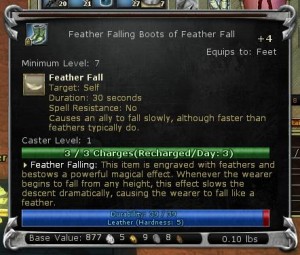I paused to think after a brief discussion with Spinks in the comments of her post, prompted by the fact that she is currently levelling one of her bank alts.
Spinks wrote:
“I feel as though the bank alt had been sadly watching the comings and going of the rich, famous adventurers from it’s humble little desk job in ((city of your choice)). And then one day it sneaked out to seek its fortune ….”
Which lead me to remember how terribly proud I was when of one of my ‘little’ bank alts made it to Outland, and yet they were no less powerful a character than any of my other alts. It must be the RPer in us, or some such thing.
I do wonder, however, what proportion of players treat their characters as a stable of well cherished pets as I tend to do; what proportion treat them as tools; and what proportion live a virtual life as their very character. Perhaps there are other categories too which I have not considered?
For me, characters are a stable of pets, with each character having a unique personality. This is why I try to clothe my characters in a way that asserts their personality, and is why I often find myself frustrated by the limitations of MMOs when it comes to character customisation. Zoso and I were discussing APB last night, and m’colleague pondered on the curiosity of creating such a detailed character customisation model when, in a fast-paced frantic shooter MMO, the strongest impression most players will get is what colour you dyed your hair, and whether you’ve found out how to ‘hilariously’ take all your clothes off. Do your players customise for themselves because they’re creating a character, or do they customise for others because their character is a tool through which they want to send a message? And how much will the pace of your MMO allow for those customisation options to be observed? It seems to me that armour and weapons are fine and obvious places where developers could let players have a lot of freedom in expressing themselves; earlobe length and orientation… not so much. Warhammer Online added costume customisation recently but it only applies to what the player and their realm mates see, the opposition will still see your Orc in a Choppa’s set of armour and not the cloth bathrobe that you find it amusing for him to wear. This has, perhaps unsurprisingly for MMO players, caused some consternation amongst said population. The developers clearly want each side to be able to easily identify the opposing classes and their respective power level, which they achieve through the distinctive armour sets that each class gets as they level. Whereas the players want freedom of choice and the extra potential to confuse the enemy by changing the appearance of their characters from the uniform norm. I think, at a fundamental level, players like to be different. They also like to wear the best, however, and this often takes precedence when it comes to choosing between stats and appearance, and means that most players end-up looking like everyone else, especially when it comes to the end game. LotRO (and EQ2 and others) has always supported this need for individuality with a wide range of cosmetic items available and custom cosmetic outfit panels alongside the standard character panel, and LotRO is going further still with the next content patch by allowing characters on the same account to share cosmetic items, such that low level alts will be able to have access to high level cosmetic items (with certain restrictions) as long as you have at least one character of a high enough level to obtain them.
Treating my characters as pets is also why I can, as a male, happily play female characters without any concern. When I play a character I am merely directing their adventure in the world, I am participating in their life, but I do not think that I am them. I invent a character for a story, and then I play out that story in the medium of an MMO; much as I when read a book, I picture what the protagonist sees, try to imagine how they feel, sense what they sense, but I don’t try to pretend that I am them. MMOs, for me, straddle a curious divide between reading a book and directing a movie: I am following a story, there is definitive structure and a narrative to it, and an eventual conclusion, but I am not an entirely passive entity, however, because at the very least I get to direct the action sequences.





